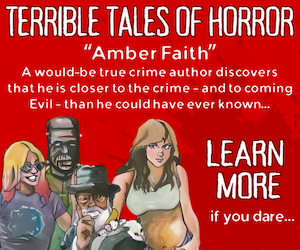“Stop pushing me,” Aunt Marty hollered as we rolled her wheelchair outside to the residents’ garden. “I can walk!” Last year, my 92-year-old aunt entered hospice care near her son’s home in Illinois. She still needs this care and must use a wheelchair.
My husband Mike and I enjoyed our visit with her last summer. She is sharp-witted and outspoken, yet warm and welcoming. My aunt was also careful to let us know when her “befuddled” times arrived. That’s when conversation becomes difficult for her.
Thankfully, after breakfast, she’s alert and conversational. We’d listen to her stories of growing up as the youngest child of Eastern European immigrants. Her parents didn’t speak English well, so my aunt and her siblings worked hard to learn English at school.
My aunt had a lonely childhood on a small farm where her family of eight struggled during the Great Depression. Fortunately, she won a scholarship to college, traveled to Europe and spoke several languages including French.
Yet she never forgot her parents’ origins. They were Rusyns, born in the Carpathian Mountains (now Slovakia), ruled then by Emperor Franz Joseph as part of the Austro-Hungarian Empire. As a teenager, my grandfather left his village with his father and brother for the coal mines of Wyoming. Meanwhile, WWI broke out in Europe. Although his father had already returned home, my grandfather stayed. He knew he’d be cannon fodder if drafted into the emperor’s army. But he did take time to head back East to marry a young teenager from the village (my grandmother). She’d made it through inspection in Ellis Island and awaited her designated husband in Ohio.
Later, with young children, they left the harsh western winters and moved to Ohio. Needing to feed a growing family, my grandfather began farming. Music was not part of their life. But my aunt did recall the music performed during the Eastern Orthodox Church services on Sunday mornings. She looked forward to hearing us create music, too.
While talking in the sunlit garden, her befuddled time arrived. It was time to play music. We performed songs that made her smile. As Mike played his mandolin, we sang lively, old tunes such as “Angelina Baker” and “Amazing Grace.” Then, we began to sing “Will the Circle Be Unbroken.”
We sang reverently and thought we were mesmerizing our captive audience. My aunt had bowed her head. I assumed that was to listen better. But, to our dismay, her shoulders began shaking. She was sobbing uncontrollably. I froze. I’d never seen my tough aunt cry!
My sister Kathy—an experienced nurse—had taught me the importance of touch when visiting older relatives. I gave my distressed aunt a back rub and held her hand. Finally, she wiped her tears and sat up straight in her wheelchair. This time, Aunt Marty didn’t holler that she wanted to walk. Instead, she quietly asked us to take her back to her room so she could nap.
What we’d forgotten is that this is a woman for whom words have always been important. She has valued language throughout her life and still listens carefully to words and how they are used, including the lyrics to every song.
That evening we chose lighthearted lullabies. We sang joyful songs, ending with “She’ll be Comin’ Round the Mountain.” One of the last verses included “she’ll be wearing red pajamas when she comes.” Aunt Marty’s eyes were closed and she was breathing slowly, so Mike and I began to tiptoe toward the door. Suddenly, my aunt’s eyes popped back open.
Indignantly, she exclaimed, “No woman back in those days wore red pajamas! That is too silly. Women wore nightgowns. Pajamas were just not proper back then!”
Like what you just read? Support Flagpole by making a donation today. Every dollar you give helps fund our ongoing mission to provide Athens with quality, independent journalism.








